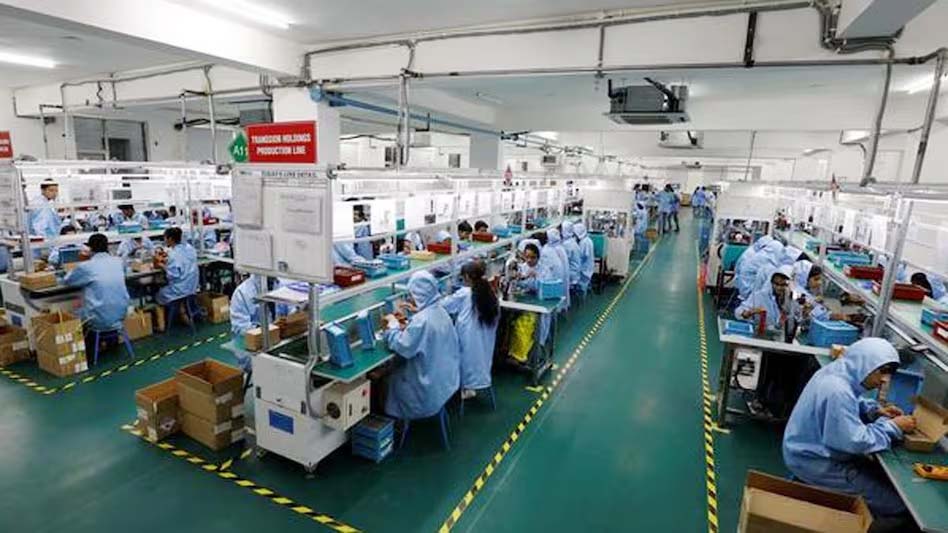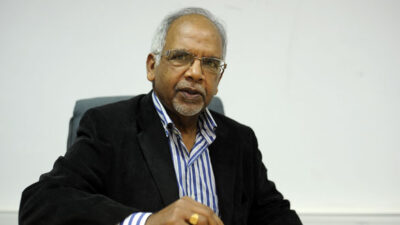Mauritius, a small island nation in the Indian Ocean, has achieved remarkable economic progress since its independence in 1968, transitioning from a sugarcane-dependent economy to an upper-middle-income country with a diversified economic base. Despite this success, challenges such as youth unemployment, skills mismatches, and labor shortages persist, hindering the country’s ambition to regain high-income status. This article explores actionable strategies for the Mauritian government to improve its job industry, drawing comparisons with advanced economies like Singapore, Germany, and Canada, which offer valuable lessons in fostering robust labor markets. By addressing structural issues, enhancing education and training, promoting innovation, and ensuring inclusivity, Mauritius can create a dynamic and sustainable job industry.
Current State of the Job Industry in Mauritius
Mauritius boasts a relatively high employment rate, reaching 94.2% in Q4 2024, but underlying issues reveal a more complex picture. Youth unemployment remains a concern, with many young Mauritians lacking the skills demanded by emerging sectors like information and communication technology (ICT), financial services, and pharmaceuticals. A 2019 World Bank report highlighted that low-paid workers, particularly women and youth, face limited earnings mobility due to a skills mismatch and unequal access to quality jobs. The reliance on foreign workers in export processing zones (EPZs), especially in textiles, underscores a shortage of skilled local labor. Additionally, the economy’s heavy dependence on tourism, manufacturing, and financial services makes it vulnerable to global shocks, as evidenced by the 14.6% GDP contraction during the COVID-19 pandemic.
To address these challenges, the Mauritian government must adopt a multifaceted approach that aligns with its National Vision 2030, focusing on job creation, skills development, and economic diversification. By examining strategies employed by advanced countries, Mauritius can tailor solutions to its unique context.
Key Strategies for Improving the Job Industry
1. Strengthening Education and Vocational Training Systems
Mauritius Context: Mauritius has made significant strides in education, offering free education from pre-primary to tertiary levels since 1977 and 2019, respectively. However, the education system is often criticized for being overly academic, failing to equip graduates with job-specific skills. A 2019 study noted that fresh graduates possess intellectual skills but lack personality and practical skills required by employers. This contributes to a skills mismatch, particularly in high-growth sectors like ICT and pharmaceuticals.
Comparative Insights:
- Germany: Germany’s dual education system integrates classroom learning with on-the-job training, producing highly skilled workers. Apprenticeships, supported by government and industry partnerships, cover over 300 occupations, ensuring graduates are work-ready. This system keeps youth unemployment low (around 6% in 2023) and supports industries like manufacturing and technology.
- Singapore: Singapore’s SkillsFuture initiative provides lifelong learning opportunities, offering subsidies for courses aligned with industry needs. The government collaborates with employers to identify future skills demands, such as in artificial intelligence and green technologies, ensuring a future-ready workforce.
Recommendations for Mauritius:
- Expand technical and vocational education and training (TVET) programs, modeling Germany’s dual system. Partner with industries to offer apprenticeships in sectors like ICT, renewable energy, and pharmaceuticals.
- Introduce a SkillsFuture-like program, providing subsidies for lifelong learning and certifications in high-demand fields. The Human Resource Development Council (HRDC) could oversee this initiative, ensuring alignment with market needs.
- Reform the curriculum to emphasize practical skills, critical thinking, and digital literacy, reducing the gap between academic education and workplace requirements.
2. Promoting Economic Diversification and Innovation
Mauritius Context: Mauritius has diversified from sugarcane to include tourism, textiles, financial services, and ICT, but its economy remains concentrated in a few sectors. The government aims to develop the pharmaceutical and ocean economy sectors, but progress is slow. Innovation is critical to creating high-value jobs, yet the ICT sector’s potential remains underexploited due to low competitiveness.
Comparative Insights:
- Singapore: Singapore’s government has driven innovation through heavy investment in research and development (R&D), targeting 2.2% of GDP annually. Initiatives like the Research, Innovation, and Enterprise 2025 Plan support startups and tech industries, creating jobs in AI, fintech, and biotech.
- Canada: Canada’s Innovation and Skills Plan fosters clusters in advanced manufacturing, clean technology, and digital industries. Tax credits and grants encourage private sector R&D, while programs like the Strategic Innovation Fund support job creation in emerging sectors.
Recommendations for Mauritius:
- Increase public and private investment in R&D, targeting at least 1% of GDP, to support innovation in pharmaceuticals, marine biotechnology, and renewable energy.
- Establish innovation hubs or technology parks, inspired by Singapore’s model, to attract startups and foreign investors. Offer tax incentives and streamlined regulations to encourage entrepreneurship.
- Leverage the freeport system, which employs over 4,500 people, to develop logistics and high-tech manufacturing hubs, creating jobs in value-added industries.
- Partner with international organizations like the World Bank to fund innovation projects, as seen in the Country Private Sector Diagnostic, which emphasizes healthcare and renewable energy.
3. Addressing Youth and Gender Disparities in Employment
Mauritius Context: Youth unemployment is higher than the national average, and women face significant barriers to employment, with a participation rate of 56% compared to 89% for men in 2016. During the COVID-19 crisis, women were more likely to exit the labor market, eroding progress in gender equality. These disparities limit economic inclusivity and growth.
Comparative Insights:
- Canada: Canada’s Youth Employment and Skills Strategy provides targeted support for young people, including job placements and skills training for disadvantaged groups. The Gender-Based Analysis Plus framework ensures policies promote gender equity, supporting initiatives like affordable childcare.
- Germany: Germany’s Equal Pay Act and parental leave policies encourage women’s workforce participation. Subsidized childcare and flexible working arrangements further reduce gender gaps, with female labor force participation reaching 76% in 2023.
Recommendations for Mauritius:
- Launch a National Youth Employment Program, offering subsidized internships, mentorship, and career counseling for young Mauritians, particularly in high-growth sectors.
- Implement women-friendly policies, such as affordable childcare, flexible work hours, and leadership development programs, to boost female participation.
- Strengthen anti-discrimination laws and promote awareness campaigns to shift cultural norms around women in high-paying roles, drawing from Germany’s approach.
4. Enhancing Labor Market Flexibility and Governance
Mauritius Context: Mauritius’ centralized wage-determination system limits wage flexibility, contributing to job destruction in traditional sectors and insufficient job creation in emerging ones. Governance challenges, including perceived corruption and politicization of institutions, erode investor confidence and economic resilience.
Comparative Insights:
- Singapore: Singapore’s flexible labor market allows wages to reflect market conditions, supported by tripartite agreements between government, employers, and unions. Strong governance, with a Corruption Perceptions Index ranking of 5th globally in 2023, ensures investor trust.
- Germany: Germany’s labor market reforms, such as the Hartz reforms, increased flexibility by easing hiring and firing regulations while maintaining social protections. Transparent governance supports a stable business environment.
Recommendations for Mauritius:
- Reform the tripartite wage-setting system to allow greater flexibility, enabling wages to reflect skills and productivity, particularly in high-tech sectors.
- Strengthen anti-corruption measures by enhancing the Independent Commission Against Corruption (ICAC)’s independence and enforcement powers.
- Improve governance by depoliticizing key institutions, as recommended by Moody’s 2022 report, to boost investor confidence and economic stability.
5. Leveraging Regional and International Integration
Mauritius Context: Mauritius promotes regional integration through expertise sharing in sugar and textiles but lacks a long-term strategy for African markets. Its freeport system facilitates trade with Asia, Africa, and Europe, but global trade liberalization has eroded preferential access to EU markets.
Comparative Insights:
- Singapore: Singapore’s trade agreements, such as the Comprehensive and Progressive Agreement for Trans-Pacific Partnership, expand market access, supporting job creation in export-oriented industries. Its strategic location and free trade zones enhance global competitiveness.
- Canada: Canada’s participation in the USMCA and other trade agreements boosts exports, creating jobs in manufacturing and services. The government supports small and medium enterprises (SMEs) to access global markets through export financing.
Recommendations for Mauritius:
- Develop a comprehensive African trade strategy, leveraging the African Continental Free Trade Area (AfCFTA) to expand markets for Mauritian goods and services, particularly in pharmaceuticals and ICT.
- Enhance the freeport’s role as a logistics hub, offering supply chain solutions to attract foreign investment and create jobs.
- Support SMEs through export training and financing, enabling them to compete globally, as seen in Canada’s model.
Implementation and Monitoring
To ensure the success of these strategies, the Mauritian government should:
- Establish a Job Industry Task Force, comprising representatives from government, industry, and academia, to oversee implementation and monitor progress.
- Use key performance indicators, such as youth unemployment rates, female labor participation, and job creation in high-tech sectors, to evaluate outcomes.
- Partner with international organizations like the World Bank and OECD for technical assistance and funding, as seen in past collaborations.
Mauritius stands at a critical juncture, with the potential to transform its job industry and achieve high-income status. By strengthening education and training, promoting innovation, addressing disparities, enhancing labor market flexibility, and leveraging global markets, the government can create a resilient and inclusive labor market. Lessons from Singapore’s innovation-driven economy, Germany’s dual education system, and Canada’s inclusive policies offer valuable blueprints. With strategic reforms and robust governance, Mauritius can not only overcome its current challenges but also serve as a model for other developing nations striving for sustainable economic growth.





